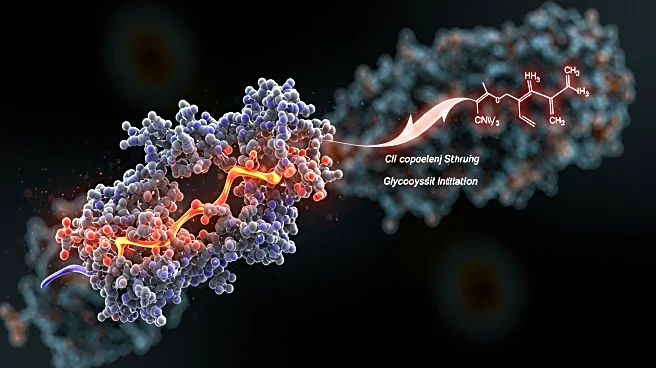What is the story about?
What's Happening?
Recent research has highlighted the role of the ubiquitin ligase APC/C in coordinating cell cycle progression by targeting proteins for degradation. During cell cycle entry from quiescence, cells rely on glycolysis for ATP production, which is essential for biosynthesis. The study reveals that APC/C remains active until the G1-S transition, raising questions about how glycolysis is initiated if APC/C degrades key enzymes. Researchers suggest that transient APC/C inactivation occurs when full growth medium is added to cultured cells, indicating a distinct mechanism involving growth-promoting kinases.
Why It's Important?
Understanding the mechanisms of cell cycle progression is crucial for advancements in medical and biological research. The findings could have implications for cancer research, as the regulation of cell cycle and glycolysis are critical in tumor growth and development. This research may lead to new therapeutic strategies targeting APC/C and glycolytic pathways, potentially offering novel treatments for cancer and other diseases characterized by abnormal cell cycle progression.
What's Next?
Further research is needed to explore the specific kinases involved in APC/C inactivation and their potential as therapeutic targets. Scientists may investigate the broader implications of these findings in various cell types and conditions. The study opens avenues for developing drugs that can modulate APC/C activity, offering potential benefits in cancer treatment.
Beyond the Headlines
The study also raises ethical considerations regarding the manipulation of cell cycle processes in medical treatments. Long-term effects and safety of targeting these pathways need thorough evaluation before clinical application.
















